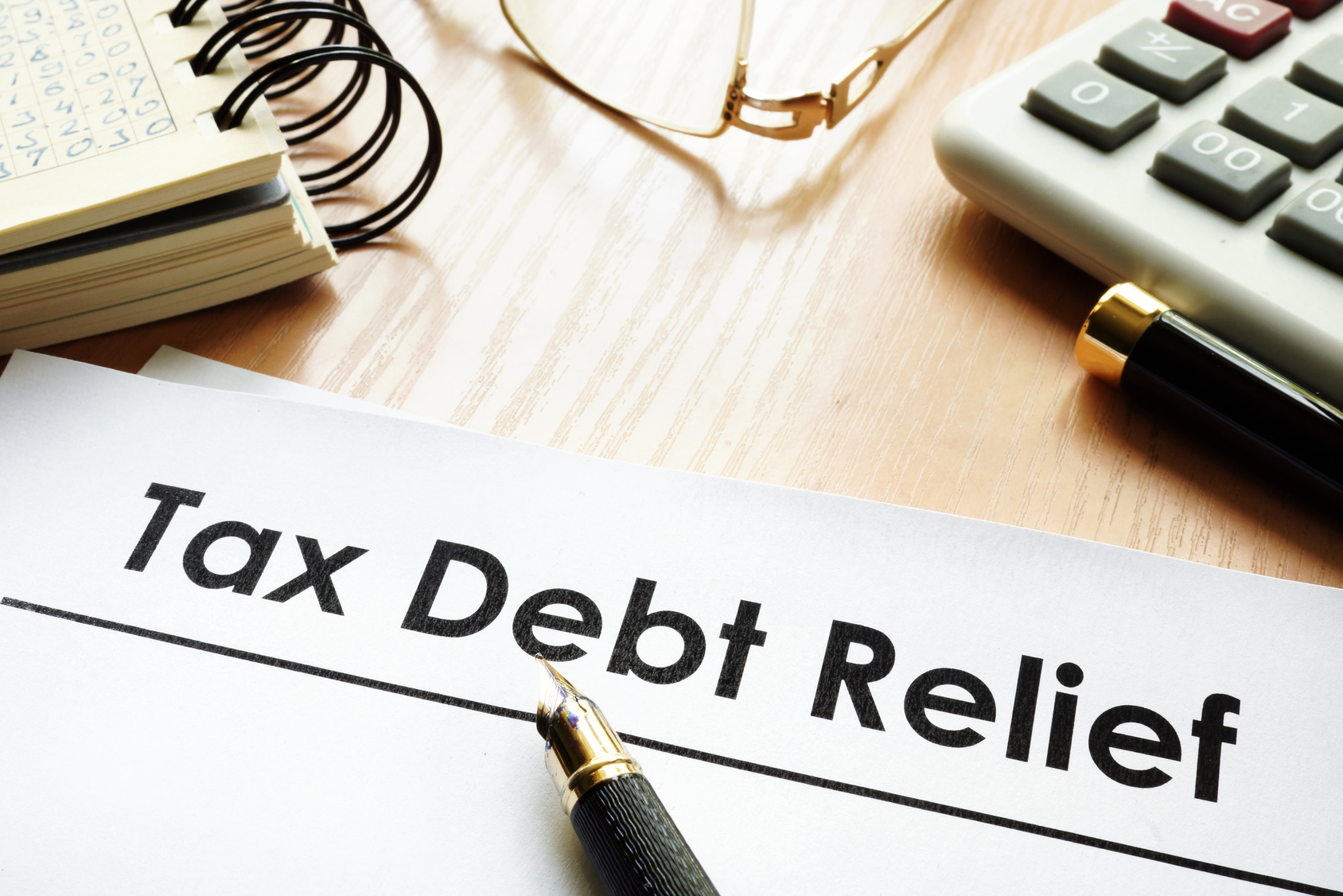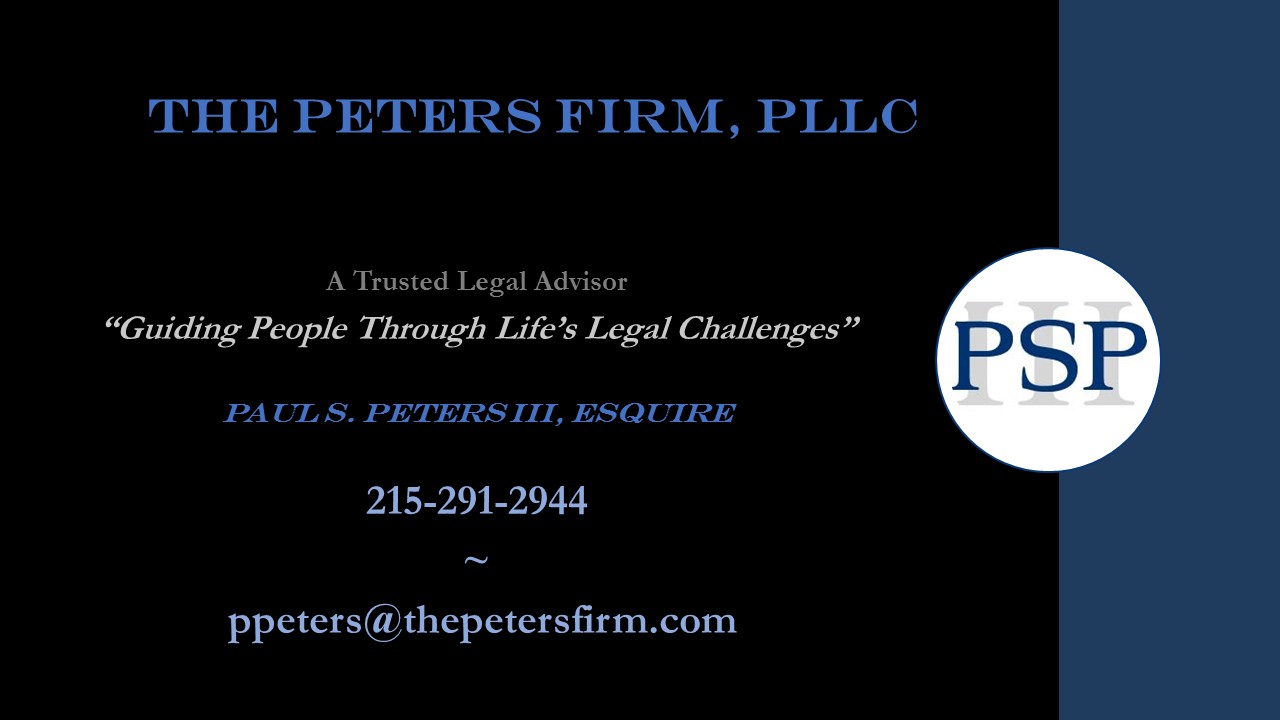
Bankruptcy and Tax Debt in Pennsylvania
There is a common misconception when it comes to Bankruptcy and Tax Debt, being that Tax Debt will not get erased in a Bankruptcy filing. While not all Tax Debts get erased in Bankruptcy, certain Tax Debts can if meeting specific requirements. When discussing Bankruptcy and erasing debts, the term “Erase” is replaced with the Bankruptcy term “Discharge.”
Tax Debt that Can Get Erased in Bankruptcy
When it comes to Bankruptcy and Tax Debt, you can discharge tax debts in a Chapter 7 Bankruptcy if you meet the following requirements:
1. The Tax Debt at issue is income-based. Meaning, the Tax Debt must be for federal, state, or local income taxes you owe based on your tax returns.
2. The Tax Debt at issue must be related to a Tax Return that was due at least three years before filing Bankruptcy. Any extensions for filing the return will impact the three-year calculation.
• For example, if you file Bankruptcy in 2020, you would be eligible for possibly erasing income taxes for tax returns due in 2017 and back.
3. The Tax Debt at issue must be related to a Tax Return you filed.
• The Tax Return must have been filed at least two years before filing Bankruptcy.
• You are not eligible to erase a Tax Debt if the return was never filed or filed late, and the Tax Debt at issue resulted from the IRS, State, or Locality filing a substituted return and assessing an estimated tax liability.
4. The Tax Debt at issue must be assessed at least 240 days before filing Bankruptcy. The time limit will get extended if you entered negotiations or an offer and compromise with the taxing authority.
5. The Tax Debt at issue cannot be a result of a Fraudulent Tax Return or Willful Evasion to pay taxes.
• If you intentionally fail to list income or intentionally misrepresent any deductions, that is considered a Fraudulent Tax Return.
• If you claim you were unable to pay the Tax Debt owed because your living expenses left no money to pay the Tax Debt, that will be acceptable. However, if discovered, that you had no money left because you went on a luxury vacation, purchased expensive cars or jewelry, or put in a pool, that may be deemed Willful Tax evasion.
• The burden is on the IRS, State, or Locality to raise and prove an allegation of Fraud or Willful Evasion; you do not need to submit proof upon requesting a discharge unilaterally.
Tax Debt that Cannot Get Erased in Bankruptcy
1. Taxes you collect on behalf of a Third-Party and must submit to the Third-Party.
• Examples are Sales Taxes and Payroll Taxes.
2. Tax Debts that are liens on real estate you own.
• The Tax Debt will get discharged for purposes of avoiding wage garnishments or seizing of bank account funds, but the lien will remain on your real estate and require payment if you attempt to sell the real estate.
3. Real Estate taxes that were last payable within one year of your bankruptcy filing.
• While you can discharge Real Estate taxes payable more than one year before your bankruptcy filing, most Real Estate taxes attach to your real estate as a lien if not paid by the due date. Therefore, the ability to discharge Real Estate taxes is rare.
How to have Tax Debts Erased in Bankruptcy
The process for discharging qualifying Tax Debts in Bankruptcy requires an extra step not required for other debts such as credit cards and medical bills.
The process for attempting to have Tax Debt discharged is:
1. File your bankruptcy petition with the proper Federal Bankruptcy Court with the Tax Debt listed on the petition.
2. Next, file an “Adversary Action” against the Taxing Authority (i.e., IRS), which is analogous to filing a lawsuit within the Bankruptcy requesting the Bankruptcy Court discharge the Tax Debt.
3. Properly serve the Taxing Authority with the Adversary Action.
4. Submit evidence that you satisfy the Tax Debt discharge requirements and successfully defend any allegation of Fraud or Willful Evasion.
Many people fail to inquire whether their Bankruptcy and Tax Debt will lead to a discharge of the debt. Therefore, if they are in a dire situation, and the Tax Debt is crushing them and disrupting their lives, they fail to take advantage of a way out.
If you are facing unmanageable Tax Debt(s) and believe you may satisfy the requirements stated above, immediately call the Trusted and Experienced Bankruptcy Lawyer, Paul S. Peters III, Esquire. Using his 20 years of experience handling Bankruptcy Matters, including those regarding Tax Debt, Paul S. Peters III, Esquire will guide you through the process of attempting to Erase your Tax Debt. DO NOT WASTE ANOTHER MINUTE!
YOU BETTER CALL PAUL!
215-291-2944
ppeters@thepetersfirm.com
Trusted and Experienced
Pennsylvania Bankruptcy Attorney
If you are considering filing a Chapter 7 or Chapter 13 Bankruptcy, contact the trusted and experienced Montgomery, Philadelphia, Bucks, Delaware, Chester, Lehigh, Lancaster, Northampton, Berks, Adams, Cumberland, Dauphin, Franklin, Fulton, Huntington, Juniata, Lebanon, Mifflin, Perry, Snyder, York Bradford, Cameron, Centre, Clinton, Lycoming, Montour, Northumberland, Potter, Sullivan, Tioga, Union, Carbon, Columbia, Lackawanna, Luzerne, Monroe, Pike, Schuylkill, Susquehanna, Wayne, and Wyoming County Chapter 7 and Chapter 13 Bankruptcy Attorney Paul S. Peters III, Esquire at:
PAUL S. PETERS III, ESQ.
215-291-2944
ppeters@thepetersfirm.com



